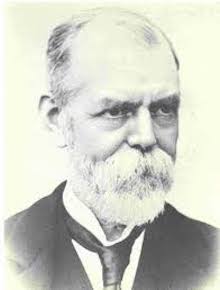Summary of a Reading on Matthew 13, Led by Frederick Raven

In Matt 13:31-46 we have two parables as to the kingdom of heaven, the mustard tree and the leaven.
The Mustard Tree
The mustard tree represents a conspicuous, hierarchical system. People shelter under it. It is a false kingdom, ruling over the kings of the earth, a religious system dominating the political, and its end is Babylon. Christ never intended the church to be like that, with clergy, sacramentalism and the like. When Christianity assumed a form and character which God never intended, it was morally a ruin.
The Leaven
The Leaven represents a mass corrupted by wrong doctrine and the adaptation of Christianity to human ideas. It is what the Colossians were warned of: ‘Beware lest any man spoil you through philosophy and vain deceit, after the tradition of men, after the rudiments of the world, and not after Christ’ (Col 2:8). It is also like the fig tree in Matthew 21:19. The fig tree has been cut down for good: it represents man’s culture, and it is cursed.
Where we stand
Raven felt that we are apt to hanker after both of these, but we are to be apart from them morally. Every one who takes a place outside the great world order is a witness to the ruin, which has come upon Christianity as a whole. When asked whether our collective position is a witness to the ruin, Raven replied, ‘I do not understand a collective position. I do not mind who it is, it is anybody who calls on the Lord out of a pure heart… If you get two people walking in righteousness they will naturally be drawn together.’ Somebody in ‘Bethesda’ (Open Brethrenism) cannot be said to be in the fellowship of the truth. A lawless man cannot be a witness to the ruin, he is in the ruin. The mystery of lawlessness already works, and it is only as we are apart from it that we can be a witness to the ruin.
People speak about ‘our fellowship’. Our fellowship can only be the whole Christian fellowship. We must go on without any pretension or any idea of a ‘corporate witness’. We cannot claim to be an ecclesiastical company in any sense. When someone said, ‘We are in danger of becoming a tree,’ FER’s reply was, ‘Well, a small tree!’ I am sure that produced some smiles!
The truth is our bond. We are not an association of like-minded Christians operating on scriptural lines. As we stand aside and, through grace, we find others who are waiting too, and we can break bread together, not forming anything.
When asked whether there was any company who could act with authority, Raven answered ‘No!’ We cannot put away, we can only depart from evil. We cannot act as the assembly, only according to the principle of it. Two or three acting in Christ’s name cannot claim to be the assembly.
FER said ‘I cannot recognise a company. If I were asked to what company I belong, I should say, “To none”.’
Summary by Sosthenes
August 2015
The original reading is in ‘Ministry by F.E. Raven, Volume 15 – page 357’. This may be obtained from Kingston Bible trust or downloaded by clicking here.
Frederick Edward Raven
Frederick Edward Raven was born September 9, 1837 at Saffron Walden, Essex. His parents were active members of the Church of England. In 1865 when he was 28, FER left the Church of England and broke bread at the Priory meeting in north London, where J N Darby was also local.
Among other matters, FER’s valuable ministry opened up the truth as to eternal life and the Person of Christ – which made him the object of attack to this day.
He worked at the Royal Naval College, Greenwich, becoming Secretary in 1873. It is understood that he was offered, but refused, a knighthood for services rendered to the British Admiralty.
Mr. Raven departed to be with Christ on Lord’s Day, August 16, 1903.
Source MyBrethren.org

